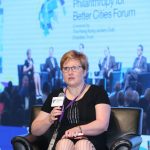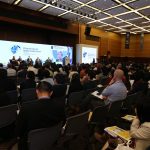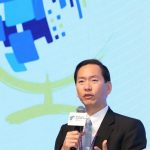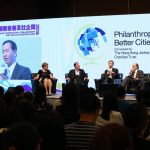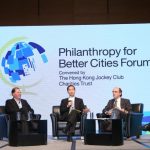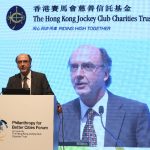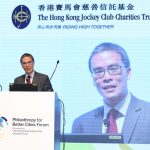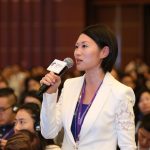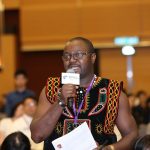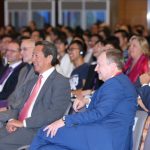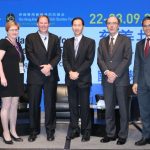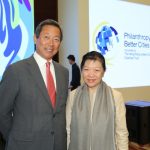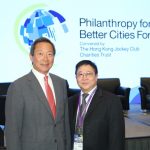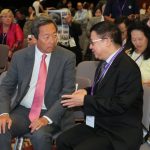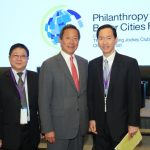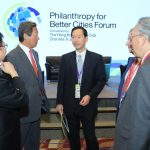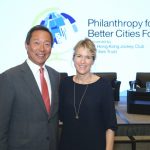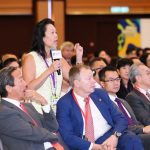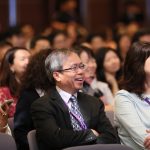Speakers:
- Bernard Chan President, Asia Financial Holdings
- Laurence Lien CEO, Asia Philanthropy Circle
- Robert Rosen Director, Bill & Melinda Gates Foundation
- Bradford Smith President, Foundation Center
Facilitator:
- Rosemary Addis Founder & Chair, Impact Investing Australia
This plenary built on the key messages from Day 1, with the panelists sharing their views on the critical opportunities and challenges facing philanthropy institutions in the future.
Ms. Addis set the stage by taking about how philanthropy can contribute to fostering better cities. To know this, philanthropists need to know 1) the destination – what constitutes better cities; and 2) the path ahead, and acting with a sense of purpose. She also talked about some of the themes broached on Day 1 including the roles of measurement, definition of impact, creating shared value as core part of business strategy to scale solutions to social issues; 4) collaboration across and within sectors; and 5) finding intervention points that is fit for purpose.
Mr. Chan kicked off the discussion by providing the local framing on the Hong Kong situation. As a city with one of the highest life expectancy in the world and lowest infant mortality, it also is very safe by international standards. Chan commented, “(Some) People might live poorly, but at least they are safe.” The government on the other hand, has a huge surplus, but “can money buy solutions to social problems?”
He also talked about how to incentivize corporate CEOs to do more good. This is because they are still benchmarked by ROA or ROI and still get penalized of those bottom lines are still low. He also mentioned that the rise of family foundations and philanthropy especially among the next generation, is still at a searching stage – a search for the right models, tools and approaches.
Mr. Smith, as a leader of a philanthropic intermediary, emphasized that philanthropy is a field that needs data, but is currently way behind on its progress. There are six themes in the use of data, to: 1) connect non-profits to resources; 2) empower donors with knowledge tools; 3) build the global data platform; 4) communicate philanthropy’s contribution; 5) encourage greater foundation transparency; and 6) ensure robust technology to support the Center’s work. Mr. Lien, in contrast, shared his perspective using the Yin and Yang analogy for philanthropy and business approaches, respectively, to social impact. He noted that philanthropy in Asia tends to not want to rock the boat and he encouraged the audience for a more radical approach to philanthropy to tackling challenging social issues that may be a taboo culturally (such as quality of death topic).
Mr. Rosen, picked up where Mr. Lien and Mr. Chan left off by sharing about the US and global trends, as well as what philanthropists are doing there. For example, the recent announcement of the Chan-Zuckerberg Foundation to fund basic science to eradicate disease may not specifically benefit the US or a specific city, but has significant potential in filling a void in the health space that hopefully will reap rewards in the future.
Lastly, the panelists agreed on the need to share among foundations what they are doing well so they can learn from each other.
